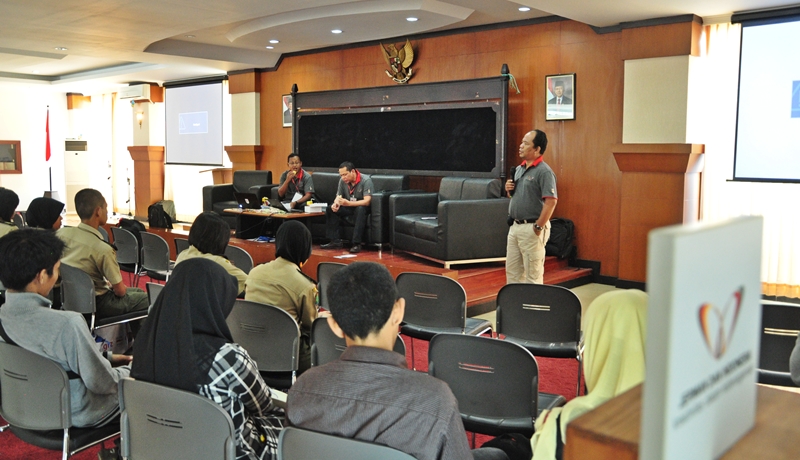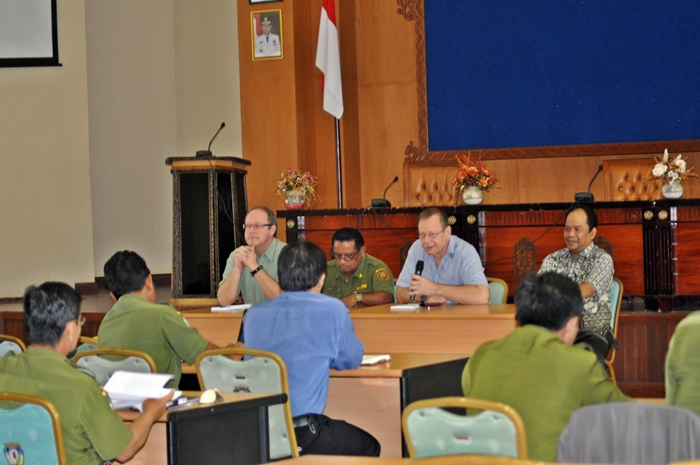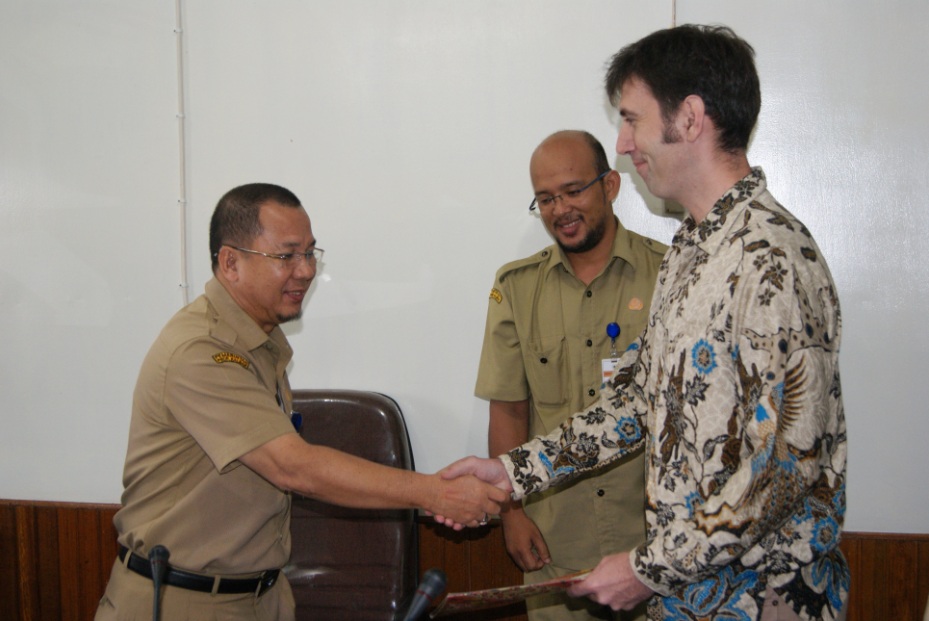FORCLIME
Forests and Climate Change ProgrammeTechnical Cooperation (TC Module)

Select your language

At the Germany-Indonesia (JERIN) Expo which has been touring the country since October 2011 and was hosted by Samarinda from 13 to 17 February FORCLIME invited students from the Forestry Vocational High School and the public of Samarinda to discuss the issues of climate change and REDD+. The discussion took place at the Public Library of East Kalimantan on 15 February and was attended by 50 highly enthusiastic participants. As an introduction FORCLIME experts provided some explanations about the causes and impacts of climate change, international agreements and efforts in climate change mitigation through REDD+. They also talked about efforts which everyone can do individually. In the ensuing lively discussion the students asked critical questions, such as about the inconsistency of government policies for emission reduction given that there are still forest conversions for mining exploitation and oil palm, lack of commitment from the developed countries like the USA who refused to ratify the Kyoto Protocol, weak supervision and law enforcement in the forestry sector, etc.
The students also contributed their own experience with climate change mitigation activities:
I am proud that my friends and I have made use of air conditioning waste water, which contains a lot of methane gas, for cultivating oyster mushrooms. Our experience in developing oyster mushroom cultivation awarded us the first prize of the Scientific Writing Competition of the Forestry Schools in Indonesia. Waste water from AC appliances which contains greenhouse gas elements can be utilized for something productive.
(Ije, student of the Forestry High School in Samarinda)
In fact, from the comments of participants we learned that there are many efforts to improve environmental quality and emission reductions which are initiated by the community. Therefore, in order to protect the environment it is necessary to improve governance both at the level of government administration, but also by promoting community participation in such efforts. This is in line with the principles of 3S, namely: Starting from yourself, Starting from small actions, Starting right now...
The Germany-Indonesia (JERIN) Expo will be in Bandung from 12 -16 March at the ITB Campus Centre for its last display. It will be accompanied by a photo exhibition on forests provided by FORCLIME.
For more information, please contact:
Tunggul Butarbutar
Solichin Manuri

In the first two weeks of February FORCLIME Component 2 conducted workshops in each of the three pilot districts in order to prepare the FORCLIME annual work plan and align it with the district planning. In each location this “Road Show” was attended by representatives from the District Forest Service, local agencies at district level, Technical Units of the Ministry of Forestry at province level, NGOs and communities. Objective of the workshops was to share information about the progress made in 2011 and to synchronize and harmonize the work plan of Component 2 for 2012 with the planning of the local partners, particularly the District Forest Services.
The proposed annual programme consists of activities in the following four main areas of work:
During the workshops some issues were raised which need to be followed up by the FORCLIME Programme and its partners:
For more information, please contact:
Helmut Dotzauer (helmut.dotzauer@giz.de) or
Tunggul Butarbutar (tunggul.butarbutar@giz.de) or
Edy Marbyanto (edy.marbyanto@giz.de)

On Wednesday, 25 January 2012, a Memorandum of Understanding (MoU) has been signed between the district government of Kapuas Hulu and GIZ FORCLIME to contribute to developing the Danau Sentarum National Park and its surroundings as a District Strategic Area (Kawasan Strategis Kabupaten-KSK) for ecotourism development. This District Strategic Area (ecotourism DSA) is a derivative of the draft Land Use Plan of Kapuas Hulu district 2011-2031. It will provide a more detailed and operational direction for land use to all stakeholders pursuing developmental projects or activities related to land utilization, in particular for ecotourism development in the district, based on Law 26 / 2007 on Land Use Planning. Given that eco-tourism is one of the main sectors to achieve the district’s strategic objectives, as set out in the draft Land Use Plan, this District Strategic Area will be a key in implementing the district’s strategy. The ecotourism DSA is one of three planned District Strategic Areas described in the spatial plan:
The agreed output of the collaboration on the basis of this MoU is a document that can be used as guideline for monitoring and optimizing land utilization for developing ecotourism in Kapuas Hulu District for the next twenty years (2011-2031).
For further information, please contact:
Heinz Terhorst
Team Leader of FORCLIME Component 3
heinz.terhorst@eco-consult.com


